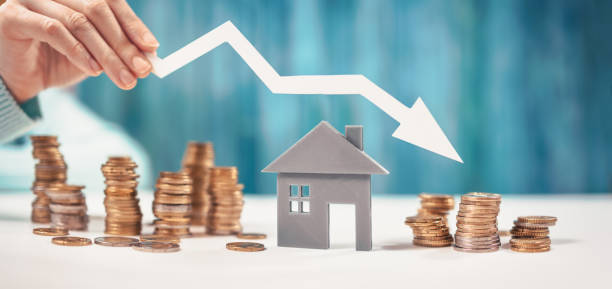In recent years, real estate prices have been experiencing a significant upward trend. This article explores the primary causes behind the consistent rise in property values. By examining the factors driving this increase, homeowners, investors, and potential buyers can better understand the market dynamics and make informed decisions.
Low mortgage rates
One of the most influential factors driving the rise in real estate prices is the historically low mortgage rates. Low-interest rates reduce the cost of borrowing, making it more affordable for homebuyers to obtain financing. This surge in demand for homes often leads to higher property prices. For many, the combination of lower monthly payments and long-term savings on interest has made homeownership more attainable and attractive, further driving up prices.
Limited housing supply
The supply of available homes has not kept pace with the growing demand, creating a supply-demand imbalance. Several reasons contribute to this limited housing supply:
- Slow construction rates due to labor shortages and high material costs.
- Land use regulations and zoning laws that restrict new developments.
- Homeowners are holding onto properties longer, reducing inventory.
This shortage of available homes inevitably leads to increased competition among buyers, driving up prices as a result.

Urbanization and population growth
As more people move to urban areas for better job opportunities, education, and lifestyle amenities, the demand for housing in these regions has surged. Population growth, particularly in major metropolitan areas, exacerbates this trend. With more people competing for limited housing stock in desirable locations, property values naturally increase. The desirability of urban living and the influx of new residents continue to fuel this upward trajectory in real estate prices.
Inflation of building materials
The cost of building materials has seen substantial increases due to various factors, including tariffs, supply chain disruptions, and increased demand. As the costs to construct new homes rise:
- Developers pass on these higher costs to buyers.
- Affordability of new housing is impacted.
- Existing homes become more valuable in comparison.
This trend not only affects new construction but also raises the overall valuation of existing properties, contributing to the rising real estate prices.
Investment and speculation
Real estate is a popular investment, attracting both individual and institutional investors. The expectation of future price appreciation leads to speculative buying, driving demand and prices even higher. Investment behaviors such as buying properties to rent or flip encourage this cycle. Additionally, investors may be motivated by:
- Desire for a tangible asset.
- Tax advantages.
- Diversification of investment portfolios.
This growing interest in real estate as a lucrative investment opportunity contributes significantly to the rising prices.

Conclusion
The rise in real estate prices can be attributed to a combination of factors, including low mortgage rates, limited housing supply, urbanization, rising costs of building materials, and increased investment interest. Understanding these dynamics is crucial for anyone involved in the housing market. Whether you are buying, selling, or investing, staying informed on these trends can aid in making more strategic and informed decisions in a competitive market.
FAQs
1. Are low mortgage rates expected to stay?
While mortgage rates are subject to change based on economic conditions, it is uncertain how long the current low rates will persist. It’s important to stay updated with financial news and forecast reports to gauge potential rate changes.
2. Can the housing supply issue be resolved quickly?
Addressing the housing supply problem will likely take time due to factors such as construction delays, regulatory hurdles, and the need for substantial infrastructure changes. Efforts are being made, but a quick resolution is unlikely.
3. How does urbanization impact home prices in rural areas?
While urbanization predominantly affects city housing prices, it can also influence rural areas. As cities become more expensive, some people move to rural areas, increasing demand and prices in those regions.
4. What impact do tariffs have on building material costs?
Tariffs on imported goods, including building materials, can increase costs for constructors and developers. These additional costs often translate into higher prices for buyers as developers seek to maintain profitability.
5. Should I invest in real estate given the rising prices?
Investing in real estate can be a good opportunity, but it requires careful consideration of market conditions, potential risks, and long-term goals. Consulting with financial advisors and real estate experts can provide better insights tailored to your situation.



